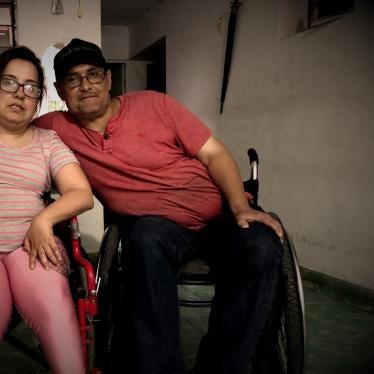Most people who have a disability or who are closely related to someone with a disability have felt hostility, or open rejection, based on disability at some point in their lives. “Disability hate” exists on a spectrum that ranges from giving dirty looks – for occupying too much space in public transportation or for looking and acting differently from others – to committing criminal acts against someone because they have a disability, are perceived as having a disability, or are associated with someone with a disability.
Luz Raquel Padilla Gutiérrez, 35, was burned alive after a group of people doused her with alcohol and lit her on fire at a park near her home in Zapopan, Jalisco state, Mexico. Her brutal murder appears to be a horrific example at the extreme end of the disability hate spectrum. Statements by her colleagues indicate that one factor in her murder may have been disability hate toward her and her son, an 11-year-old with autism.
Weeks before she was murdered, media reports indicate, Luz reported being threatened by a neighbor because he didn’t like the noises her son made during crises. She also said the neighbor had attacked her with industrial bleach. Her friends say she went to the police and asked for a panic button (pulso de vida), which the authorities give people in their protection system. In May, she tweeted a photo showing that someone had painted “I’m going to burn you alive” on the walls of the building where she and her son lived. Despite the reported threats, physical violence, and signs of escalation, the Zapopan authorities denied her request.
In Jalisco state, an individual prosecuted for murder can face aggravated charges if the crime was motivated by disability hate or discrimination based on disability. However, Jalisco only applies that aggravating factor to homicides and assaults, not to threats.
Jalisco authorities should address this gap in their legislation. They should ensure crimes potentially motivated by disability hate are thoroughly investigated and perpetrators are brought to justice. And authorities should put in place policies and practices to effectively respond to people with disabilities, as well as those close to them, who report threats or violence.










